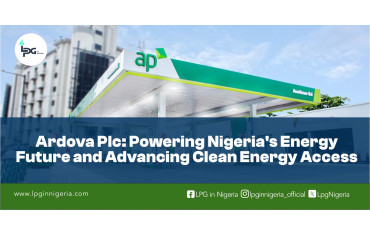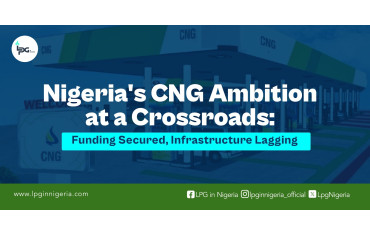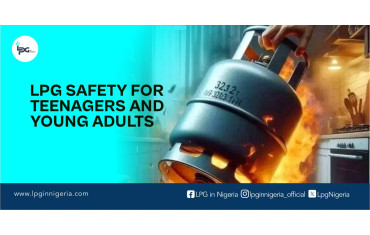- 10026
- 0
Sharing Ideas and Updates on LPG in Nigeria and related information to enable effective collaboration within the LPG Value Chain
Challenges And Opportunities In Nigeria's Adoption Of Compressed Natural Gas (CNG)

Challenges and Opportunities in Nigeria's Adoption of Compressed Natural Gas (CNG)
As Nigeria seeks to transition to compressed natural gas (CNG) as an alternative to premium motor spirit (PMS), also known as petrol, critical stakeholders have highlighted significant challenges that could impede this shift. The urgency of this transition has grown as petrol prices have surged following the federal government's removal of the subsidy regime.
In a recent move, the federal government directed marketers to install CNG dispensing pumps to foster the growth of the CNG adoption program. This initiative has been welcomed by indigenous gas stakeholders who view it as a promising step towards reshaping transportation, stimulating economic growth, and enhancing environmental sustainability. However, some have raised concerns about potential obstacles that need to be addressed.
Despite the government's belief in the cost-effectiveness of CNG as a key component of Nigeria’s energy strategy, marketers promoting CNG have identified significant challenges. The primary concern is the high conversion cost for vehicles from petrol to CNG, which could hinder the government's efforts to mitigate the rising cost of petrol.
Data indicates that converting petrol vehicles with 1.6-litre engines costs between N300,000 and N400,000. Tricycles with 4-stroke engines cost between N100,000 and N200,000 to convert. Converting lorries and vans can cost up to N1.8 million, while 4-stroke petrol generator engines cost around N90,000. Despite these high initial costs, the long-term economic benefits are substantial. A converted petrol vehicle consumes N40 per kilometre, saving the owner 40 percent on fuel costs. Tricycles consume N10 per kilometre, with savings of 50-75 percent compared to petrol, and converted trucks consume N360 per kilometre, resulting in significant savings.
While the government’s directive and the support from gas stakeholders signify a strong push towards CNG adoption, addressing the high conversion costs and other potential hurdles is crucial to the success of this transition and realizing its economic and environmental benefits.
The Feasibility of CNG vs. LPG Adoption
At LPG in Nigeria, we have extensively discussed the pros and cons of CNG and Liquefied Petroleum Gas (LPG). As the Nigerian government promotes the adoption of CNG, it’s essential to consider why LPG, which appears more sustainable and attainable, isn't being given equal attention. We have published an article on this topic in a prior blog post. Just click here to read and follow the trajectory of the LPG and CNG adoption rate in Nigeria.
Comparing CNG with LPG Infrastructure
CNG infrastructure development is progressing, but it’s worth comparing it with LPG, a well-established clean energy source in Nigeria used primarily for cooking and heating. The cost of setting up LPG filling stations is generally lower than CNG stations. LPG cylinders and dispensing equipment are more readily available and cost-effective, presenting an opportunity for the Nigerian government to promote LPG as a quick win in the quest for cleaner energy solutions. Click here to read more on the difference between CNG and Autogas (LPG) as alternative fuels in Nigeria.
Encouraging the use of LPG in the transportation sector alongside CNG can provide a balanced approach to reducing carbon emissions and promoting sustainable energy practices.
Tax Incentives and Economic Considerations
To reduce the cost burden of CNG infrastructure development, the Nigerian government has implemented tax incentives aimed at making CNG more attractive to investors and stakeholders. These incentives are designed to expedite the expansion of CNG infrastructure by providing financial benefits that lower the average cost of building CNG Mother stations.
However, it’s essential to ensure these incentives are balanced and do not negatively impact other sectors or revenue sources. For more insights on tax-free incentives for LPG, you can read our detailed discussion on this topic.
Conclusion
Building CNG Mother stations is a pivotal component of Nigeria's plan to develop CNG infrastructure as a cleaner and more sustainable energy source. Understanding the associated costs, comparing them with existing LPG infrastructure, and exploring the potential benefits of tax incentives for CNG are all critical steps in realising this vision. While the commitment to CNG infrastructure development is clear, a comprehensive and balanced approach that includes other clean energy alternatives like LPG is necessary. This approach can help Nigeria reduce carbon emissions, promote sustainable energy practices, and create a diverse energy landscape that meets the needs of its growing population.
















0 Comment.